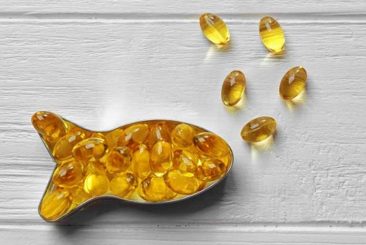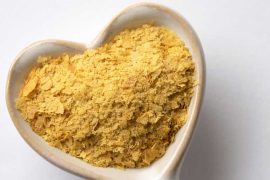Good mental health encompasses emotional resilience, a positive self-esteem, effective stress management, strong relationships, and emotional awareness. It is the foundation for emotional and psychological well-being, enabling individuals to navigate life’s challenges, maintain positive self-perception, manage stress, and adapt to change. Good mental health empowers individuals to cultivate meaningful relationships, foster self-confidence, and build a strong support network, contributing to a more fulfilling and balanced life.Here are six nutrients that have been associated with alleviating anxiety and promoting a sense of calm:
1. Magnesium:

Magnesium is an essential mineral that plays a role in calming the nervous system. It helps regulate neurotransmitters and maintain proper nerve function. A deficiency in magnesium can lead to symptoms of anxiety and stress.
2. Vitamin B Complex:

B vitamins, including B6, B9 (folate), and B12, are involved in the production of neurotransmitters like serotonin and dopamine, which play a role in mood regulation. Deficiencies in these B vitamins can contribute to anxiety.
3. Omega-3 Fatty Acids:

Omega-3 fatty acids, particularly EPA (eicosapentaenoic acid) and DHA (docosahexaenoic acid), found in fatty fish and fish oil supplements, have been shown to reduce symptoms of anxiety. They have anti-inflammatory properties and can help regulate brain function.
4. Vitamin D:

Vitamin D has been associated with various aspects of mental health. It possesses immune-modulating properties and may have a protective effect on the brain. Adequate vitamin D levels have been linked to a reduced risk of anxiety disorders.
5. Probiotics:

A healthy gut microbiome has been linked to improved mental health, and probiotics can help maintain that balance. They influence the production of neurotransmitters and can reduce inflammation in the body, which may alleviate symptoms of anxiety.
6. Zinc:

Zinc is involved in various brain functions, including neurotransmitter regulation. A deficiency in zinc has been associated with an increased risk of anxiety and mood disorders.
It’s important to note that while these nutrients can be beneficial, they should not be used as a sole treatment for anxiety. If you’re struggling with anxiety or a related mental health issue, it’s crucial to seek professional help from a healthcare provider or mental health specialist.
They can provide a comprehensive evaluation and recommend the most appropriate treatment, which may include dietary changes, lifestyle modifications, therapy, and, in some cases, medication. Always consult with a healthcare professional before making significant dietary changes or taking supplements to ensure they are safe and suitable for your specific needs.
Disclaimer:
The information contained in this article is for educational and informational purposes only and is not intended as a health advice. We would ask you to consult a qualified professional or medical expert to gain additional knowledge before you choose to consume any product or perform any exercise.








